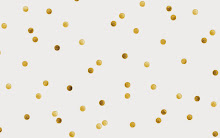 |
| Image via Amazon |
- BPA - Recycle your plastic Tupperware and buy glass. This article from The Kitchn offers reviews of various options. Drink from glass containers (Life Factory makes my favorites) instead of plastic water bottles. Eliminate other plastic items from your kitchen. Think mixing bowls, measuring cups, coffeemakers (switch to a French press). This is particularly important if these items are ever heated as the heat releases more BPA. Only purchase canned food if the can is specifically labeled BPA-free. The only current product line that is completely BPA free is Eden Organics.
- Phthalates - Phthalates are known endocrine disruptors and you should do your best to eliminate these from your life. You'll find most of them in your bathroom in nail polish, cosmetics, lotion, hair products, etc. The Honest Company makes a number of products that are phthalate-free and this article offers helpful tips on how to eliminate them from your life. Start with scrutinizing the labels on your perfume, deodorant, shampoo, conditioner, lotion, laundry detergent, etc. You are looking for the terms phthalate (can be buried in a longer word), DEP, DBP or fragrance.
- Food - Generally eat organic fruits, vegetables, and meat and avoid processed food. Depending on your specific issue, going gluten-free may be helpful. Regardless, you want to stick to low glycemic index foods (particularly grains), which predominantly means whole grains such as quinoa, couscous, kidney beans, lentils, and chick peas. Avoid white flour, pasta, bread - anything that is a "simple carb" containing white flour. Sugar should also be avoided. Basically you should be eating the things you know you should eat and that are good for you.
- Caffeine & Alcohol - Studies vary and everyone has an opinion on this one, but best to avoid both, particularly if you are preparing for an IVF cycle.
- DHEA -75 mg day from a reputable source (like a compounding pharmacy). Mine is prescribed by my RE.
- COQ10 - 300 mg/day taken in the morning with protein.
- Thyroid & Vitamin D - Get both of these checked and get them into normal ranges.
Even if you have read all sorts of books and blogs on this subject, I think there is new information to be gained by reading this book. Do any of you have recommended reading?







it starts with the egg
ReplyDeletehttps://ivfsuccessplan.com/ivf-success-and-lifestyle/
IVF Success Tips - IVF success and lifestyle are closely linked but how common is it for women undergoing treatment to have things in their lives that could cause problems? The answer? Very common.